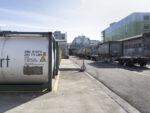Category Archive: 6b.) Mises.org
Reassessing European Contact: Insights from Spanish America
"There’s no doubt that the Americas [and its indigenous populations] were irrevocably changed by European contact. ... In this essay I invite readers to interpret the history of the Americas through a more useful thematic lens: rulers versus subjects."
Read More »
Read More »
Was Steve Bannon Close Friends with Jeffrey Epstein?
Steve Bannon, who has condemned "Austrian economics, limited government," also spent many hours chumming it up with Epstein.
Read More »
Read More »
Surviving Capitalism: The Scarcity Advantage
The story of Anil Ambani destroys the belief that capitalism automatically favors the rich and excludes the poor. Once a billionaire, he made a series of bad business choices and the market punished those choices. Capitalism favors good choices.
Read More »
Read More »
Christine Lagarde to leave ECB before the end of her 8-year term
European economists regard Spain’s former central bank governor Pablo Hernández de Cos and his Dutch counterpart Klaas Knot as top picks to become the next ECB president.
Read More »
Read More »
Surviving Capitalism: The Scarcity Advantage
The story of Anil Ambani destroys the belief that capitalism automatically favors the rich and excludes the poor. Once a billionaire, he made a series of bad business choices and the market punished those choices. Capitalism favors good choices.
Read More »
Read More »
Peru’s Congress Removes President José Jerí
Jerí, a 39-year-old lawyer, was elected to Peru’s Congress in 2021 for Somos Peru, a small conservative party. The removal follows allegations of collusion with Chinese businessmen.
Read More »
Read More »
Voter ID is Common Sense, But it Won’t Fix Anything
While the Voter ID debate consumes the airwaves with political debate, the real issue is not who is elected, but the unelected elites that hold power. Even if Voter ID passes, the new law will not change the real structure of power.
Read More »
Read More »
Monetary Decay and Imperial Survival
The American empire—with its global military footprint and permanent war economy—cannot be financed through honest taxation without provoking revolt.
Read More »
Read More »
Can We Go Back to the Gold Standard?
Is it theoretically possible to go back to the gold standard? If so, what are some ways it could be implemented?
Read More »
Read More »
When Moderation Becomes Method: Scientism and the Prestige of Experts
The middle of the road reveals itself not as balance, but as a gentle slope toward the rationalized management of social life.
Read More »
Read More »
Why We Should Repeal the Civil Rights Act
The Civil Rights Act, first passed in 1964, is falsely connected with freedom. In reality, this law severely restricts individual liberty and replaces it with coercive government acts.
Read More »
Read More »
Voter ID is Common Sense, But it Won’t Fix Anything
While the Voter ID debate consumes the airwaves with political debate, the real issue is not who is elected, but the unelected elites that hold power. Even if Voter ID passes, the new law will not change the real structure of power.
Read More »
Read More »
California’s Billionaire Tax and State-to-State Flight
Bob lays out California’s proposed 5% wealth tax on billionaires, using it to explain why taxes on wealth are especially destructive, how different tax structures change incentives, and what recent migration data says about people voting with their feet.
Read More »
Read More »
A Brief History of the Petite Bourgeoisie
From the Jacksonians to the Marxists, political theorists have understood that there is something unique about "small industry" between big business and propertyless workers.
Read More »
Read More »
Why Mises’s The Theory of Money and Credit Is Still Important Today
Ludwig von Mises’s first major work was The Theory of Money and Credit in which he explained the role of money in the economy and also pointed out what causes the boom-bust cycle. It remains an important classic in Austrian economics.
Read More »
Read More »
Why Mises’s The Theory of Money and Credit Is Still Important Today
Ludwig von Mises’s first major work was The Theory of Money and Credit in which he explained the role of money in the economy and also pointed out what causes the boom-bust cycle. It remains an important classic in Austrian economics.
Read More »
Read More »
Freedom at the Extremes: Why Liberty Attracts Both the Brilliant and the Plain
Why does such a strong love of freedom appear both among towering intellects and among those of far more modest cognitive means?
Read More »
Read More »




















